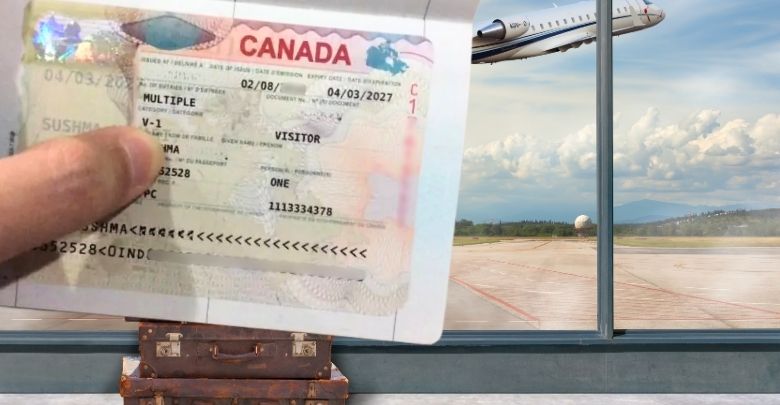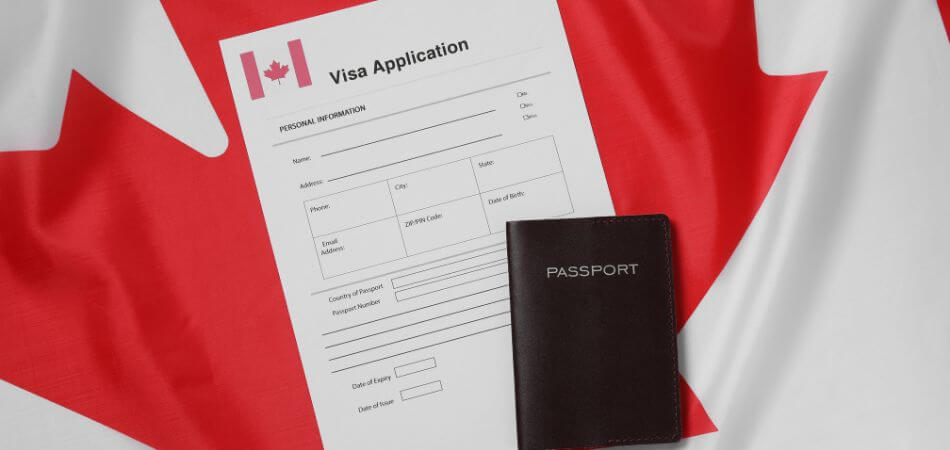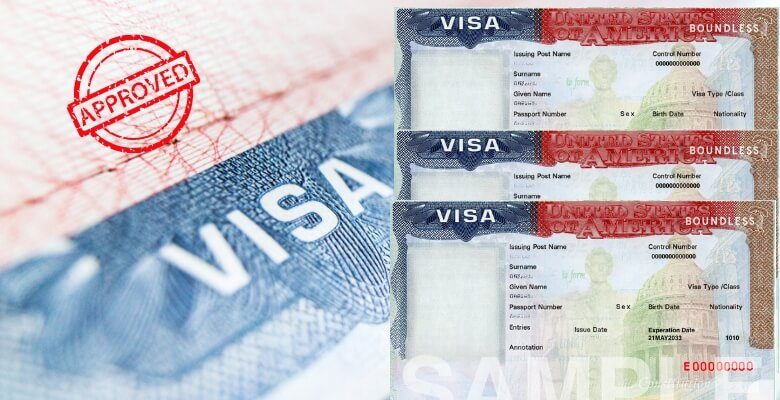A conference is a large meeting where people gather to discuss ideas, share knowledge, and network about specific topics or industries. It is an opportunity for professional career development. Now one question might arise, “Can I apply for a conference visa if I have a criminal record?”
Yes, you can apply for a conference visa with a criminal record. However, your application’s success will depend on several factors, including the nature and severity of the crime, as well as your efforts toward rehabilitation. It’s essential to be honest about your criminal history and seek legal advice to improve your chances.
Interested in learning how to apply for a visa with a criminal record? Read this article for useful tips, understand what matters in your application, and discover how you can maximize your chances of getting the conference visa. Don’t miss out!
Conference Visa – What Does It Mean?
The conference visa allows people to attend international conferences, meetings, or events. It is designed specifically for professionals and academics who want to attend professional or academic gatherings abroad. Participants can attend lectures, network with other attendees, and participate in workshops during the conference.

For instance, if you are planning to attend a global conference in Canada, a conference visa is necessary. This visa permits you to enter Canada for the conference’s duration and participate in all scheduled events. You will need to show proof of your conference registration, such as a Conference in Canada 2024 with Invitation Letter, and demonstrate that you plan to return to your home country after the event.
It is often necessary to fill out an application form, submit documentation, and attend an interview to obtain a conference visa. To avoid delays or denials, follow these steps carefully. A successful conference experience relies on a thorough understanding of the visa’s purpose and requirements.
Do I Have to Pay Additional Fees for a Conference Visa if I Have a Criminal Record?
A criminal record can affect many aspects of your life, including your finances. Although it doesn’t always lead to extra fees, there are several ways it can impact your expenses. By understanding these potential costs, you can be better prepared for them.
Impact of Criminal Records on Visa Application Fees
When applying for a visa, attending a conference with a criminal record can increase the overall fee. As part of the application process, additional documents may need to be submitted or a more detailed interview may need to be conducted.
Legal Fees for Expunging a Criminal Record
If you need to clear or expunge your criminal record, this can involve legal fees. You may need to hire a lawyer to help with the expungement process, which is an additional expense beyond application fees.
Costs for Detailed Background Checks
A criminal record may require more thorough background checks for jobs or licenses. These comprehensive checks can be more expensive than standard background checks, leading to extra costs.
Fees for Legal Consultations and Advice
Lawyers and legal advisors can charge fees if you seek legal advice to deal with the consequences of a criminal record. It is often necessary to seek legal advice to understand how your record affects various applications and can result in additional charges.
Possible Extra Costs for Rehabilitation Programs
As part of moving on from a criminal record, you might be required to pay for therapy or training programs. These programs have their fees and are potential additional expenses for you.
There might not be a direct increase in fees for every situation when a criminal record is present, but there are a variety of ways in which it can increase expenses. Planning and managing your finances effectively will benefit you if you are aware of these additional expenses.
Can I Apply for a Conference Visa if I Have a Criminal Record?
Yes, you can apply for a conference visa even if you have a criminal record. However, your application’s success will depend on several important factors. When considering this situation, many applicants wonder, “Can I apply for a conference visa if I have a criminal record?” Let’s explore what you need to know to improve your chances of getting that visa.
Nature of the Criminal Record
Visa authorities will closely review your criminal record to determine your eligibility. Minor offenses, like traffic violations, might not be a big deal, while serious crimes like fraud or violent offenses can be problematic. Your visa application is heavily influenced by the type and circumstances of the crime.
When applying for a visa, you must be honest about your criminal history. If you attempt to hide information, you may face serious consequences, like visa denial. Transparency about your background remains important. Honesty and trustworthiness can be proved to the authorities through transparency.
The intensity of the Crime
The intensity of the crime has a significant impact on an applicant’s visa application. Those with severe fraud or violent offenses are likely to be examined more closely, and their visas may be denied. Minor offenses, especially those committed a long time ago, might not have as big an impact on your application.
You will also be judged based on the time since the crime occurred and your behavior since then. If a significant amount of time has passed and you have maintained a clean record since the offense, it may work in your favor during the visa assessment.
Rehab Efforts
An applicant’s visa application can be significantly impacted by the evidence of rehab he or she provides. If you can show that you have made positive changes and addressed past issues, it may help your case. It might include community service, counseling sessions, or other relevant programs that prove you’ve moved on.
Your application can also be supported by a character reference from someone you trust. Employers, community leaders, or others can vouch for your good character. These references can strengthen your application by highlighting your positive changes.
Country – Specific Regulations
Different countries have varying regulations and policies regarding criminal records for visa applications. Some countries have stricter rules and might deny visas for certain criminal records, while others might be more lenient. It’s important to research the specific regulations of the country you are planning to visit for your conference.
Check the visa requirements for the specific country you are applying to. Prepare your application accordingly and address criminal record issues if necessary. Each country’s approach to visa applications can vary, so this step is crucial. Additionally, you may find it easier to apply for a conference visa through a travel agent, who can help navigate the requirements and streamline the process for you.
Legal Advice
Your visa application can be greatly benefited by a legal professional. A lawyer who specializes in immigration law can provide personalized guidance based on your personal situation and help you deal with the complexities of the visa process. They can also help you prepare your application and handle any legal challenges that arise.
In order to increase your chances of a successful application, a legal expert can provide you with strategies. They can resolve any criminal record issues and ensure that your application meets all requirements. Professional advice can make a significant difference to your visa application.
A criminal record does not automatically disqualify you from obtaining a conference visa; however, understanding these factors and seeking legal advice before applying can greatly improve the chances of your application being approved.
What Can I Do if My Criminal Record Affects My Conference Visa Application?
When applying for a conference visa, a criminal record can complicate the process. However, there are several strategies you can use to improve your chances of visa approval. Here are five key actions you can take if you find yourself in this situation.
1. Consult with an Immigration Lawyer
One of the first steps is to seek professional advice from an immigration lawyer. Visa lawyers can give you specific advice based on your criminal record. They can help you understand the legal implications and guide you on how to present your case effectively to the visa authorities.
2. Gather Supporting Documents
Collect all relevant documents that support your application and demonstrate your suitability for a conference visa. This might include character references, proof of rehabilitation, or documents showing your contributions to your profession. Well-organized documentation can strengthen your case and show that you are a responsible individual.
3. Prepare a Detailed Explanation Letter
Write a letter explaining your criminal record, including the circumstances of the offense and what you have done to make amends. Be honest and transparent about your past while focusing on your positive contributions since the offense. A well-written explanation letter can help the visa officers understand your situation better.
4. Show Evidence of Your Professional Achievements
Highlight your professional achievements and how attending the conference will benefit your career and the conference itself. Provide evidence of your qualifications, past successes, and how this conference aligns with your professional goals. Demonstrating your value as a conference attendee can help offset concerns about your criminal record.
5. Apply for a Waiver or Pardon
It may be possible to obtain a waiver or pardon for your criminal record based on your circumstances. This legal process can remove or reduce the impact of your past offenses on your visa application. An immigration lawyer can help you apply for a waiver or pardon if you meet the requirements.
There are several steps you can take if your criminal record impacts your conference visa application. An immigration lawyer, supporting documents, an explanation letter, showcasing your professional achievements, and requesting a waiver or pardon are all important. Take these steps to improve your chances of a successful visa application and focus on conference opportunities.
How Can I Improve My Chances of Getting a Conference Visa?
Securing a conference visa can be a crucial step toward professional goals. Follow these five tips to improve your application and increase your chances of success, designed to meet conference organizer expectations.
Step 1. Research Visa Requirements Thoroughly
Begin by reviewing the specific visa requirements for your destination country. Visit the official embassy or consulate website to get detailed information on documents, forms, and application procedures. Understanding these requirements ensures you meet all the necessary criteria for a successful application.
Step 2. Prepare a Complete and Accurate Application
Fill out your visa application form carefully and include all the required documents. Make sure there are no errors or omissions in your application. A well-prepared application shows attention to detail and reduces delays or rejections.
Step 3. Get an Invitation Letter
Request a formal invitation letter from the conference organizers that includes details about the event and your participation. The letter should outline the conference dates, location, and your role in the event. A strong invitation letter demonstrates your genuine intent to attend and the importance of the conference.
Step 4. Demonstrate Financial Stability
Show proof that you have sufficient funds to cover your travel and accommodation expenses. Provide bank statements, employment proof, or financial support documents. Financial stability reassures the visa officer that you can support yourself during your stay.
Step 5. Prepare for the Visa Interview
If an interview is required, practice your answers to potential questions about conference attendance and its benefits to your career. You should be clear and detailed in your responses. Proper preparation for an interview can help you make a positive impression. Keep in mind that any violations, such as the consequences of conference visa after overstaying, can lead to serious repercussions for future travel.
A successful conference visa application can be significantly improved by researching visa requirements, preparing a complete application, securing an invitation letter, demonstrating financial stability, and preparing for the visa interview. You can achieve your conference goals by following these steps and presenting a strong application.
Frequently Asked Questions
When it comes to conference visas, there are many questions that can arise. Here are some common questions and answers to help you understand the application process. Explore these FAQs to find helpful information for your visa application.
How Do I Apply for a Conference Visa?
Fill out an online application form for your destination country to apply for a conference visa. You will need to provide documents such as an invitation letter from the conference organizers, a valid passport, recent photographs, and evidence of sufficient funds. The embassy or consulate will review your application and decide whether to approve it.
Can I Extend My Stay After the Conference Ends?
Extending your stay after the conference ends is generally not allowed on a conference visa. In order to stay longer, you need to apply for a new visa or request an extension from immigration authorities before your current visa expires. It’s important to follow the legal guidelines and deadlines to avoid any issues with your visa status. Be sure to plan ahead if you think you will need more time.
Do I Need to Show Proof of Accommodation for the Entire Stay?
Yes, you usually need to show proof of accommodation for the entire duration of your stay when applying for a conference visa. A hotel booking, a rental agreement, or an invitation letter from your host can be used to prove your accommodation. You need to demonstrate that you have arranged suitable accommodation and that you intend to attend the conference.
How Long Does It Take to Process a Conference Visa?
The time it takes to process a conference visa can vary depending on the country and the specific circumstances of your application. Generally, it can take anywhere from a few weeks to two months for your visa to be processed. Check with the embassy or consulate for their estimated processing times to avoid any delays.
Can I Change My Travel Dates After My Visa is Approved?
After your visa is approved, changing your travel dates can be quite complicated and is not always allowed. If you need to adjust your travel dates, you must contact the embassy or consulate where you applied for the visa and explain your situation. They may require additional documents or a new application, which can delay your travel plans.
Final Word
It can be a fantastic opportunity to grow professionally and network at an international conference. With careful planning and preparation, you can make the most of this experience. If you’re worried about your past affecting your application, remember that there are ways to manage the situation.
So, “Can I apply for a conference visa if I have a criminal record?” Yes, you can! The right steps can greatly increase your chances if you understand the factors affecting your application. By being transparent and seeking professional advice, you can overcome potential obstacles.
You should not let concerns about your criminal record stop you from pursuing conference opportunities. With the right preparation and approach, you can handle the visa application process and enjoy the conference to the fullest extent.







